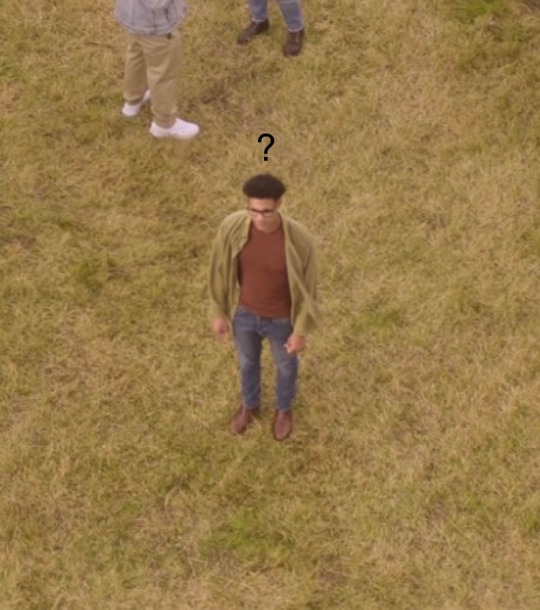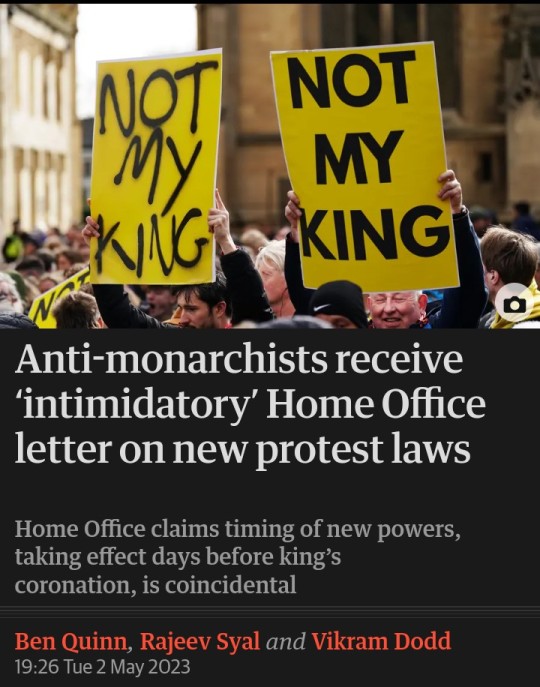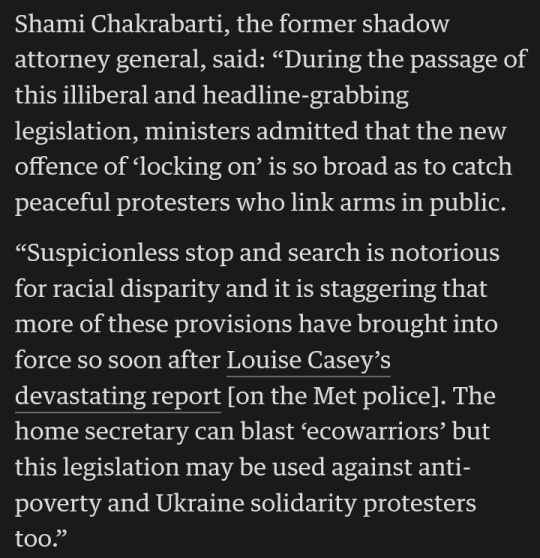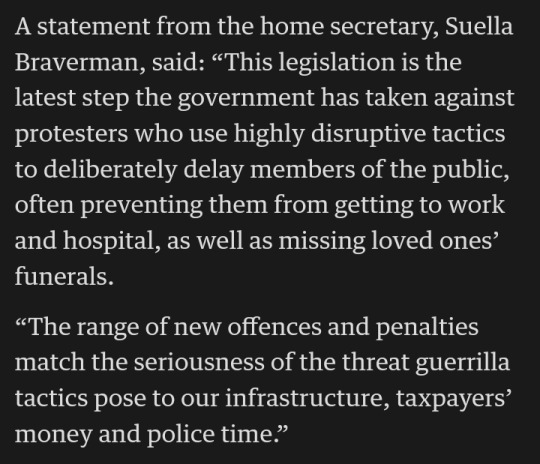#fuck the torys
Explore tagged Tumblr posts
Text
The kids are alright!😫 (The torys aren't though😙)

❤️
#ynwa#liverpool fc#liverpool football club#conor bradley#jarell quansah#bobby clarke#james mcconnell#jayden danns#harvey elliott#curtis jones#trent alexander arnold#fuck the torys#fuck the monarchy#chelsea#chelsea fc#carabao cup#efl cup#league cup#liverpool vs chelsea
18 notes
·
View notes
Text

🎉 🎉 🎉
47 notes
·
View notes
Text
May 16, 2024 - Another example of pro-Palestinian student protesters practicing great media discipline, as Cambridge students give fascist MP Suella Braverman the silent treatment when she tries to fish for soundbites for the far-right GBNews. [link]
#cambridge#uk#free palestine#palestine#fuck the tories#suella braverman#2024#student protest#students#university#england#video#britain#tories
10K notes
·
View notes
Text
You're a reasonably informed person on the internet. You've experienced things like no longer being able to get files off an old storage device, media you've downloaded suddenly going poof, sites and forums with troves full of people's thoughts and ideas vanishing forever. You've heard of cybercrime. You've read articles about lost media. You have at least a basic understanding that digital data is vulnerable, is what I'm saying. I'm guessing that you're also aware that history is, you know... important? And that it's an ongoing study, requiring ... data about how people live? And that it's not just about stanning celebrities that happen to be dead? Congratulations, you are significantly better-informed than the British government! So they're currently like "Oh hai can we destroy all these historical documents pls? To save money? Because we'll digitise them first so it's fine! That'll be easy, cheap and reliable -- right? These wills from the 1850s will totally be fine for another 170 years as a PNG or whatever, yeah? We didn't need to do an impact assesment about this because it's clearly win-win! We'd keep the physical wills of Famous People™ though because Famous People™ actually matter, unlike you plebs. We don't think there are any equalities implications about this, either! Also the only examples of Famous People™ we can think of are all white and rich, only one is a woman and she got famous because of the guy she married. Kisses!"
Yes, this is the same Government that's like "Oh no removing a statue of slave trader is erasing history :(" You have, however, until 23 February 2024 to politely inquire of them what the fuck they are smoking. And they will have to publish a summary of the responses they receive. And it will look kind of bad if the feedback is well-argued, informative and overwhelmingly negative and they go ahead and do it anyway. I currently edit documents including responses to consultations like (but significantly less insane) than this one. Responses do actually matter. I would particularly encourage British people/people based in the UK to do this, but as far as I can see it doesn't say you have to be either. If you are, say, a historian or an archivist, or someone who specialises in digital data do say so and draw on your expertise in your answers. This isn't a question of filling out a form. You have to manually compose an email answering the 12 questions in the consultation paper at the link above. I'll put my own answers under the fold. Note -- I never know if I'm being too rude in these sorts of things. You probably shouldn't be ruder than I have been.
Please do not copy and paste any of this: that would defeat the purpose. This isn't a petition, they need to see a range of individual responses. But it may give you a jumping-off point.
Question 1: Should the current law providing for the inspection of wills be preserved?
Yes. Our ability to understand our shared past is a fundamental aspect of our heritage. It is not possible for any authority to know in advance what future insights they are supporting or impeding by their treatment of material evidence. Safeguarding the historical record for future generations should be considered an extremely important duty.
Question 2: Are there any reforms you would suggest to the current law enabling wills to be inspected?
No.
Question 3: Are there any reasons why the High Court should store original paper will documents on a permanent basis, as opposed to just retaining a digitised copy of that material?
Yes. I am amazed that the recent cyber attack on the British Library, which has effectively paralysed it completely, not been sufficient to answer this question for you. I also refer you to the fate of the Domesday Project. Digital storage is useful and can help more people access information; however, it is also inherently fragile. Malice, accident, or eventual inevitable obsolescence not merely might occur, but absolutely should be expected. It is ludicrously naive and reflects a truly unpardonable ignorance to assume that information preserved only in digital form is somehow inviolable and safe, or that a physical document once digitised, never need be digitised again..At absolute minimum, it should be understood as certain that at least some of any digital-only archive will eventually be permanently lost. It is not remotely implausible that all of it would be. Preserving the physical documents provides a crucial failsafe. It also allows any errors in reproduction -- also inevitable-- to be, eventually, seen and corrected. Note that maintaining, upgrading and replacing digital infrastructure is not free, easy or reliable. Over the long term, risks to the data concerned can only accumulate.
"Unlike the methods for preserving analog documents that have been honed over millennia, there is no deep precedence to look to regarding the management of digital records. As such, the processing, long-term storage, and distribution potential of archival digital data are highly unresolved issues. [..] the more digital data is migrated, translated, and re-compressed into new formats, the more room there is for information to be lost, be it at the microbit-level of preservation. Any failure to contend with the instability of digital storage mediums, hardware obsolescence, and software obsolescence thus meets a terminal end—the definitive loss of information. The common belief that digital data is safe so long as it is backed up according to the 3-2-1 rule (3 copies on 2 different formats with 1 copy saved off site) belies the fact that it is fundamentally unclear how long digital information can or will remain intact. What is certain is that its unique vulnerabilities do become more pertinent with age." -- James Boyda, On Loss in the 21st Century: Digital Decay and the Archive, Introduction.
Question 4: Do you agree that after a certain time original paper documents (from 1858 onwards) may be destroyed (other than for famous individuals)? Are there any alternatives, involving the public or private sector, you can suggest to their being destroyed?
Absolutely not. And I would have hoped we were past the "great man" theory of history. Firstly, you do not know which figures will still be considered "famous" in the future and which currently obscure individuals may deserve and eventually receive greater attention. I note that of the three figures you mention here as notable enough to have their wills preserved, all are white, the majority are male (the one woman having achieved fame through marriage) and all were wealthy at the time of their death. Any such approach will certainly cull evidence of the lives of women, people of colour and the poor from the historical record, and send a clear message about whose lives you consider worth remembering.
Secondly, the famous and successsful are only a small part of our history. Understanding the realities that shaped our past and continue to mould our present requires evidence of the lives of so-called "ordinary people"!
Did you even speak to any historians before coming up with this idea?
Entrusting the documents to the private sector would be similarly disastrous. What happens when a private company goes bust or decides that preserving this material is no longer profitable? What reasonable person, confronted with our crumbling privatised water infrastructure, would willingly consign any part of our heritage to a similar fate?
Question 5: Do you agree that there is equivalence between paper and digital copies of wills so that the ECA 2000 can be used?
No. And it raises serious questions about the skill and knowledge base within HMCTS and the government that the very basic concepts of data loss and the digital dark age appear to be unknown to you. I also refer you to the Domesday Project.
Question 6: Are there any other matters directly related to the retention of digital or paper wills that are not covered by the proposed exercise of the powers in the ECA 2000 that you consider are necessary?
Destroying the physical documents will always be an unforgivable dereliction of legal and moral duty.
Question 7: If the Government pursues preserving permanently only a digital copy of a will document, should it seek to reform the primary legislation by introducing a Bill or do so under the ECA 2000?
Destroying the physical documents will always be an unforgivable dereliction of legal and moral duty.
Question 8: If the Government moves to digital only copies of original will documents, what do you think the retention period for the original paper wills should be? Please give reasons and state what you believe the minimum retention period should be and whether you consider the Government’s suggestion of 25 years to be reasonable.
There is no good version of this plan. The physical documents should be preserved.
Question 9: Do you agree with the principle that wills of famous people should be preserved in the original paper form for historic interest?
This question betrays deep ignorance of what "historic interest" actually is. The study of history is not simply glorified celebrity gossip. If anything, the physical wills of currently famous people could be considered more expendable as it is likely that their contents are so widely diffused as to be relatively "safe", whereas the wills of so-called "ordinary people" will, especially in aggregate, provide insights that have not yet been explored.
Question 10: Do you have any initial suggestions on the criteria which should be adopted for identifying famous/historic figures whose original paper will document should be preserved permanently?
Abandon this entire lamentable plan. As previously discussed, you do not and cannot know who will be considered "famous" in the future, and fame is a profoundly flawed criterion of historical significance.
Question 11: Do you agree that the Probate Registries should only permanently retain wills and codicils from the documents submitted in support of a probate application? Please explain, if setting out the case for retention of any other documents.
No, all the documents should be preserved indefinitely.
Question 12: Do you agree that we have correctly identified the range and extent of the equalities impacts under each of these proposals set out in this consultation? Please give reasons and supply evidence of further equalities impacts as appropriate.
No. You appear to have neglected equalities impacts entirely. As discussed, in your drive to prioritise "famous people", your plan will certainly prioritise the white, wealthy and mostly the male, as your "Charles Dickens, Charles Darwin and Princess Diana" examples amply indicate. This plan will create a two-tier system where evidence of the lives of the privileged is carefully preserved while information regarding people of colour, women, the working class and other disadvantaged groups is disproportionately abandoned to digital decay and eventual loss. Current and future historians from, or specialising in the history of minority groups will be especially impoverished by this.
16K notes
·
View notes
Text
there he is


#michael holden#I fucking love this guy so much#heartstopper season 3#heartstopper#alice oseman#tori spring#charlie spring#nick and charlie#nick nelson#lgbtq#netflix
5K notes
·
View notes
Text
THIS.
A poor person being frustrated and resentful due to their lack of access to basic needs, wishing they weren't poor, and taking steps to change their circumstances is not what classism is.
#this applys to fiction and real life#like wtf people#its always rich people as well that day that its classist#probs cos they want to protect their little circle and dont want people from other backgrounds to be percived as being the same status#fuck the torys#as a workibg class girl abiut to get a degree i feel this too much#like yeah i can read classics and be from a mining town#????#honesty people do my nut in#next theyll be saying its classist to say people living in poverty have bad living conditions#likeeeeee poinying out that people cant aford to survive its classist#thats the way that things may be able to change?#like minimum wage cant suport a family
93 notes
·
View notes
Text
In the wise and immortal words of Con O'Neill:

(gif by @zara2148)
4K notes
·
View notes
Text

💀💀💀
#i cannot#bojo the clown#uk politics#uk#british politics#boris johnson#politics#fuck the tories#the tories
2K notes
·
View notes
Text
I strongly doubt any musician has a more bad-ass start to their Wikipedia article than Tori Amos does:

[id of pic, the start of a Wikipedia article:
Tori Amos (born Myra Ellen Amos; August 22, 1963) is an American singer-songwriter and pianist. She is a classically trained musician with a mezzo-soprano vocal range. Having already begun composing instrumental pieces on piano, Amos won a full scholarship to the Peabody Institute at Johns Hopkins University at the age of five, the youngest person ever to have been admitted. She had to leave at the age of eleven when her scholarship was discontinued for what Rolling Stone described as "musical insubordination".
/end id]
659 notes
·
View notes
Text
TORIES DOWN BRING OUT THE CRABS

1K notes
·
View notes
Text
hello and welcome to the uk is a fucking hell country, part 284829494





[alt text:]
Anti-monarchists receive ‘intimidatory’ Home Office letter on new protest laws
Home Office claims timing of new powers, taking effect days before king’s coronation, is coincidental
Ben Quinn, Rajeev Syal and Vikram Dodd
Official warning letters have been sent to anti-monarchists planning peaceful protests at King Charles III’s coronation saying that new criminal offences to prevent disruption have been rushed into law.
Using tactics described by lawyers as “intimidatory”, the Home Office’s Police Powers Unit wrote to the campaign group Republic saying new powers had been brought forward to prevent “disruption at major sporting and cultural events”.
The new law, given royal assent by Charles on Tuesday, means that from Wednesday:
Protesters who block roads, airports and railways could face 12 months behind bars.
Anyone locking on to others, objects or buildings could go to prison for six months and face an unlimited fine.
Police will be able to head off disruption by stopping and searching protesters if they suspect they are setting out to cause chaos.
Jun Pang, a policy and campaigns officer at Liberty, said: “Key measures in the bill will come into force just days before the coronation of King Charles – a significant event in our country’s history that is bound to inspire a wider national conversation and public protests. At the same time, the government are using a statutory instrument to bring draconian measures that the House of Lords threw out of the bill back from the dead, once again evading scrutiny and accountability.
“It’s worrying to see the police handed so many new powers to restrict protest, especially before a major national event. When the Police, Crime, Sentencing and Courts Act came into force, the police repeatedly misused them – in part because they simply did not understand them. Similarly, when Queen Elizabeth died, we saw police acting in inappropriate and heavy-handed ways towards protesters that violated their rights.”
Shami Chakrabarti, the former shadow attorney general, said: “During the passage of this illiberal and headline-grabbing legislation, ministers admitted that the new offence of ‘locking on’ is so broad as to catch peaceful protesters who link arms in public.
“Suspicionless stop and search is notorious for racial disparity and it is staggering that more of these provisions have brought into force so soon after Louise Casey’s devastating report [on the Met police]. The home secretary can blast ‘ecowarriors’ but this legislation may be used against anti-poverty and Ukraine solidarity protesters too.”
A statement from the home secretary, Suella Braverman, said: “This legislation is the latest step the government has taken against protesters who use highly disruptive tactics to deliberately delay members of the public, often preventing them from getting to work and hospital, as well as missing loved ones’ funerals.
“The range of new offences and penalties match the seriousness of the threat guerrilla tactics pose to our infrastructure, taxpayers’ money and police time.”
full article here
so just to sum this up, peaceful protesting can now land you in prison for a year and you might face an unlimited fine which i believe is up to £5000, and police can now stop and search you if they believe youre "setting out to cause chaos"
its specifically being put in place right before charles' coronation, but these are now considered criminal offenses so theyre not exclusive to it.
you know, a country where you can be put in prison for a year for peaceful protesting really doesnt sound like a fucking democracy to me.
#hell country#britpol#british politics#britain#king charles#coronation#uk politics#uk#uk police#suella braverman#charles windsor#the guardian#tories#tory government#conservatives#idk what to tag here#but fucking hell
9K notes
·
View notes
Text

1K notes
·
View notes
Text
Transition timeline time
10 years ago (I had to go for 10 years ago because I refused to be in solo photos much of the time)


Is she happy?
How about her first dress

Do you think she felt confident the first time out femme? Even if she was "still cis thou"

And now? 10 years on? 3 years HRT, 4 years out?



Do you think she feels confident and happy now? Do you think she's content now?
Because the answer is no, she's had a taste now. Being "content" is the last thing on her mind.



#jess rambles#lextothemax#trans#trans pride#trans rights#transgender#girls like us#trans women are beautiful#trans women#trans femme#mtf#mtf hrt#mtf hormones#fuck the tory scum#fuck the labour scum#uk politics#because my existence is fucking political#196#r/196
676 notes
·
View notes
Text
gonna be real, i literally don't give a shit whether charlie dies or not. he's only going to be replaced by his bald son and the monarchy will continue as it always has.
what i do care about is how this is going to be all over the news for the foreseeable even though tens of thousands of people are dying in a genocide our government is helping to fund, how people in our own country are suffering because of the cost of living crisis and the tories practically trying to tear the nhs (and many other public services) down.
and if he does die? we'll have to watch as this 'no money for the nhs' is funnelled into another state funeral and coronation. forgive me if i don't participate in the celebrations
#uk politics#british royal family#king charles#fuck the monarchy#fuck the tories#and at this point? fuck labour#or fuck kier starmer at least#i truly truly hate it here
1K notes
·
View notes
Text
The Rwanda bill has been passed. People seeking asylum in the UK are no longer safe. This bill has been criticised by many human rights groups, yet parliment have still decided to go ahead with it. People are seeking safety in the UK, and are being turned away. Article 25 of the Universal Declaration of Human Rights states that "Everyone has the right to a standard of living adequate for the health and well-being of himself and of his family, including food, clothing, housing and medical care and necessary social services, and the right to security in the event of unemployment, sickness, disability, widowhood, old age or other lack of livelihood in circumstances beyond his control.". The Rwanda bill prevents this. There is no conformation that people sent to Rwanda will be safe there. This is a blatant violation of human rights. Asylum seekers are human too, and they should be treated as such.
1K notes
·
View notes
